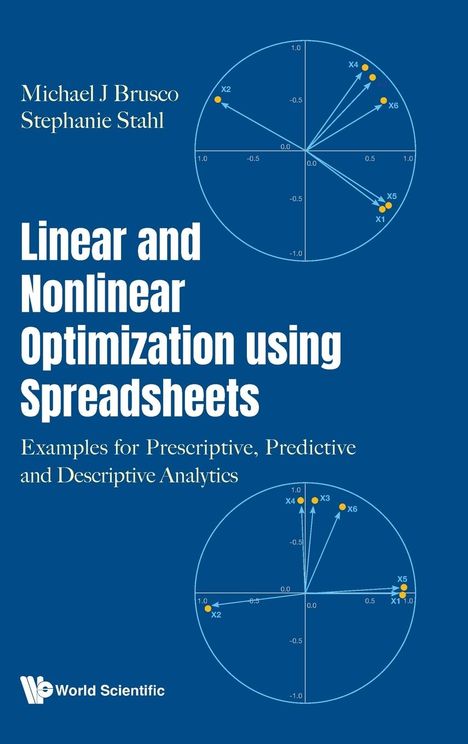Brusco Michael J: Linear And Nonlinear Optimization Using Spreadsheets, Gebunden
Linear And Nonlinear Optimization Using Spreadsheets
(soweit verfügbar beim Lieferanten)
- Verlag:
- World Scientific, 10/2024
- Einband:
- Gebunden, HC gerader Rücken kaschiert
- Sprache:
- Englisch
- ISBN-13:
- 9789811294044
- Artikelnummer:
- 12016514
- Umfang:
- 360 Seiten
- Gewicht:
- 674 g
- Maße:
- 235 x 157 mm
- Stärke:
- 24 mm
- Erscheinungstermin:
- 21.10.2024
- Hinweis
-
Achtung: Artikel ist nicht in deutscher Sprache!
Klappentext
The use of spreadsheets to obtain solutions to a diverse array of examples offers a reader-friendly way of addressing a topic (optimization) that can sometimes be viewed as intimidating. Many people are readily familiar with spreadsheets and how they work, yet are apt to be unaware of the incredible power of Excel for solving some rather complex optimization problems. A major goal of the book is to sell readers on why it is so important to understand optimization, and a large collection of examples for a wide range of business decision making areas (e. g., production planning and scheduling, workforce planning and scheduling, location and supply chain distribution, location of emergency services, assembly line balancing, vehicle routing, project scheduling, revenue management, advertising, product design, payout schedules, productivity measurement, investment portfolio management, sports league scheduling, ranking models, etc.) affords a practical mechanism for achieving that goal. Another important contribution of the book is that it provides coverage of the mechanics of some common yet sophisticated statistical methods (regression, logistic regression, discriminant analysis, factor analysis, and cluster analysis), which are often opaque to many users of such methods.


